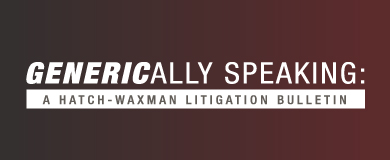- Acumen Powered by Robins Kaplan LLP®
- Affirmative Recovery
- American Indian Law and Policy
- Antitrust and Trade Regulation
- Appellate Advocacy and Guidance
- Business Litigation
- Civil Rights and Police Misconduct
- Class Action Litigation
- Commercial/Project Finance and Real Estate
- Corporate Governance and Special Situations
- Corporate Restructuring and Bankruptcy
- Domestic and International Arbitration
- Entertainment and Media Litigation
- Health Care Litigation
- Insurance and Catastrophic Loss
- Intellectual Property and Technology Litigation
- Mass Tort Attorneys
- Medical Malpractice Attorneys
- Personal Injury Attorneys
- Telecommunications Litigation and Arbitration
- Wealth Planning, Administration, and Fiduciary Disputes
Acumen Powered by Robins Kaplan LLP®
Ediscovery, Applied Science and Economics, and Litigation Support Solutions
-
April 23, 2024David Martinez Recognized Among Top 100 Lawyers in Los Angeles by LA Business Journal
-
April 15, 2024Robins Kaplan Named to 2024 BTI Client Service A-Team
-
April 9, 2024Robins Kaplan LLP Files Complaint Against Social Media Giants Meta, Snap, TikTok on Behalf of Spirit Lake Nation, Menominee Indian Tribe of Wisconsin
-
April 30, 2024Navigating Generational Dynamics
-
May 2-3, 2024ACI Advanced Forum on Managed Care Disputes and Litigation
-
May 6, 2024Litigating with the Legends
-
March 2024e-Commerce: Pitfalls and Protections
-
March 22, 2024‘In re Cellect’:
-
March 14, 2024How Many Cases Have You Tried to a Verdict?
-
September 16, 2022Uber Company Systems Compromised by Widespread Cyber Hack
-
September 15, 2022US Averts Rail Workers Strike With Last-Minute Tentative Deal
-
September 14, 2022Hotter-Than-Expected August Inflation Prompts Massive Wall Street Selloff
Find additional firm contact information for press inquiries.
Find resources to help navigate legal and business complexities.
Amarin Pharma, Inc. v. West-Ward Pharms. Int’l Ltd.
Summary judgment of no contributory infringement granted but denied with respect to induced infringement.
October 29, 2019

Case Name: Amarin Pharma, Inc. v. West-Ward Pharms. Int’l Ltd., No. 2:16-cv-02525-MMD-NJK, 2019 U.S. Dist. LEXIS 186911, (D. Nev. Oct. 28, 2019) (Du, J)
Drug Product and Patent(s)-in-Suit: Vascepa® (ethyl-eicosapentaenoic acid); U.S. Patents Nos. 8,293,728 (“the ’728 patent”), 8,318,715 (“the ’715 patent”), 8,357,677 (“the ’677 patent”), 8,367,652 (“the ’652 patent”), 8,431,560 (“the ’560 patent”), and 8,518,929 (“the ’929 patent”)
Nature of the Case and Issue(s) Presented: Vascepa is an oral drug formulation that reduces triglyceride levels in adult patients with severe hypertriglyceridemia. The patents-in-suit all cover a method of treating hypertriglyceridemia using ethyl-eicosapentaenoic acid (“EPA”). Plaintiffs sought to prevent defendants from launching generic Vascepa. The court granted summary judgment of no contributory infringement, but denied summary judgment of no inducement. The court also granted summary judgment as to prevent Defendants from asserting a written-description defense at trial.
Why Defendants Prevailed: Defendants argued that they could not contributorily infringe the asserted claims because their drugs as described in the proposed labeling are capable of the substantial non-infringing use of reducing triglycerides in less than twelve weeks. Defendants pointed to plaintiff’s clinical data showing reduction of triglycerides peaking around four weeks, the specifications of the patents-in-suit’s claiming of a reduction in triglycerides in as little as one week, and concessions from Amarin’s infringement expert that 5% of his patients use Vascepa for less than 12 weeks, and that it would not be prohibited by the FDA to prescribe Vascepa for less than 12 weeks. As such, the court granted summary judgment of no contributory infringement, as Defendant’s proposed generic drugs may be used in substantial, non-infringing ways. The Court noted that “even if it only happens about 5% of the time, reducing triglycerides in less than 12 weeks using Defendants’ ANDA drugs would not be ‘unusual, far-fetched, illusory, occasional, aberrant, or experimental.’”
As to inducement, defendants argued they would not induce infringement of the asserted claims because their proposed labeling did not encourage doctors to prescribe the drugs for at least 12 weeks, a limitation contained in all of the asserted claims. But the court denied summary judgment of no inducement, as Amarin’s expert provided a plausible interpretation of the labeling that doctors would understand as requiring treatment for at least 12 weeks.
Related Professionals
Christopher A. Pinahs
Partner
Haroon N. Mian
Associate
Related Publications
Related News
If you are interested in having us represent you, you should call us so we can determine whether the matter is one for which we are willing or able to accept professional responsibility. We will not make this determination by e-mail communication. The telephone numbers and addresses for our offices are listed on this page. We reserve the right to decline any representation. We may be required to decline representation if it would create a conflict of interest with our other clients.
By accepting these terms, you are confirming that you have read and understood this important notice.
